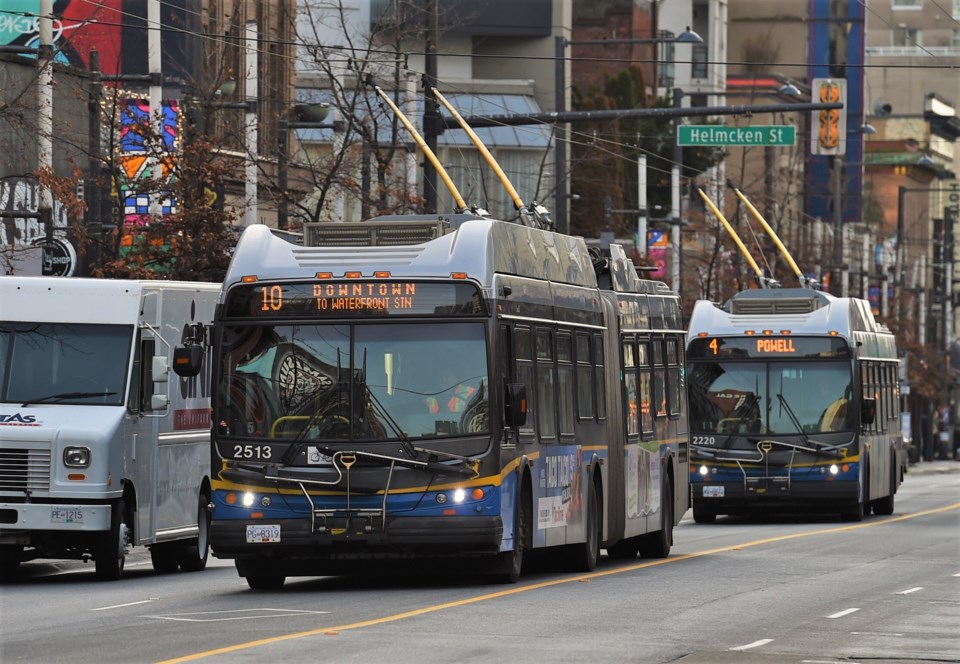It’s not the $2 billion local mayors recently asked for to expand Metro Vancouver transit services, but it is enough to keep existing electric trolley buses running another 30 to 60 years.
On Tuesday, the federal government announced $13.3 million to renew 60 kilometres of wiring and trolley poles in Vancouver and Burnaby to maintain TransLink’s fleet of 262 electric trolley buses.
Money for the renewal project will be matched by TransLink ($9 million) and the City of Vancouver ($4.3 million), for a total of $26.6 million.
Until TransLink begins to add electric battery buses on a greater scale, the trolley buses represent the only tangible stock of carbon-free vehicles, according fleet statistics. And TransLink says the buses are vital to the agency’s 2040 goal to have a “zero-emission” bus fleet.
The trolley buses serve 13 routes across the two cities and have been around since 1948.
In addition to new poles and wiring, about six kilometres of underground cable will be replaced as well as switch assemblies and hanger and ear units.
Last month, the Mayor’s Council, which directs TransLink’s vision and funding, called on the federal government to expedite permanent funding model plus provide about $2 billion for infrastructure to service its 10-year plan. By next year TransLink needs $375 million for buses, $1.4 billion to expand depots, $120 million for rapid bus transit planning on the Golden Ears Bridge, and $70 million for road safety improvements.
TransLink is also asking for additional funds in partnership for three new rapid bus routes, costing upwards of $300 million each. Those routes are: Park Royal to Metrotown; Langley to maple Ridge; and Surrey to White Rock along King George Boulevard.
The Mayor's Council's Nov.22 submission states per capita funding for TransLink service is on the decline — a result of funding not keeping up with population growth. Service hours per capita in 2010 hit an all-time high of 2.72 but have declined to 2.45 in 2022. Without more funding, those hours will decline to 2.32 by 2024, according to TransLink.
In 2023, TransLink's fleet included the following buses:
- four battery-electric
- 262 trolley-electric
- 299 compressed natural gas
- 446 diesel-electric hybrid
- 448 low-emissions diesel
- 46 conventional diesel and hybrid
- 206 gasoline shuttles
- More than 349 gasoline Handy Dart shuttles
- More than 282 support vehicles (unspecified)



